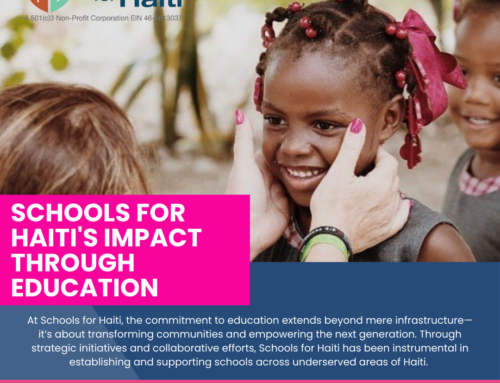Education has long been recognized as a cornerstone of development, offering pathways to prosperity, empowerment, and social progress. In the rural landscapes of Haiti, where poverty and limited resources often overshadow opportunities, access to education emerges as a beacon of hope. This article delves into the profound impact of education in rural Haiti, exploring how it catalyzes holistic transformation in the lives of children and families, fostering improvements in health, economic prospects, and community development.
In rural Haiti, education has faced challenges like economic limitations and poor infrastructure, but concerted efforts by various stakeholders have widened access, enabling transformative change. Education not only imparts knowledge but also nurtures critical thinking and creativity, unlocking the latent potential of rural youth.
Access to education in rural communities significantly impacts health and well-being by providing essential knowledge about hygiene, nutrition, and disease prevention to children. This education empowers them to make informed health decisions. Additionally, educated individuals are more capable of accessing healthcare services, advocating for their rights, and adopting healthier lifestyles, thereby enhancing overall community health outcomes.
The education there serves as a potent force for economic empowerment, providing avenues for individuals to escape poverty and obtain skills crucial for sustainable livelihoods. It unlocks diverse opportunities, including agricultural entrepreneurship and vocational training, enabling individuals to break the poverty cycle, earn income, and bolster community economic development. Educated youth are better positioned to pursue higher education and employment, fostering enduring economic growth and resilience.
In rural Haiti, education acts as a catalyst for community development by promoting social cohesion, civic engagement, and sustainable initiatives. Educational institutions empower communities to tackle local issues, mobilize resources, and effect positive change. Educated individuals are more inclined to engage in democratic processes, advocate for social justice, and lead efforts promoting environmental sustainability and resilience against natural disasters.
Also, the progress in education expansion faces persistent challenges such as infrastructure deficits, teacher shortages, and socio-economic disparities, especially affecting marginalized groups. To overcome these obstacles, sustained investment in educational infrastructure, teacher training, and targeted interventions is crucial. Additionally, efforts to improve the quality and relevance of education are essential to equip rural youth with the skills necessary for success in an evolving global context.
The impact of education in rural Haiti transcends mere academic achievement, serving as a catalyst for holistic transformation and sustainable development. By empowering individuals with knowledge, skills, and opportunities, education lays the foundation for healthier, more prosperous, and resilient communities. As Haiti continues its journey towards progress and prosperity, investing in education remains paramount, ensuring that every child has the opportunity to fulfill their potential and contribute to the collective advancement of society.






